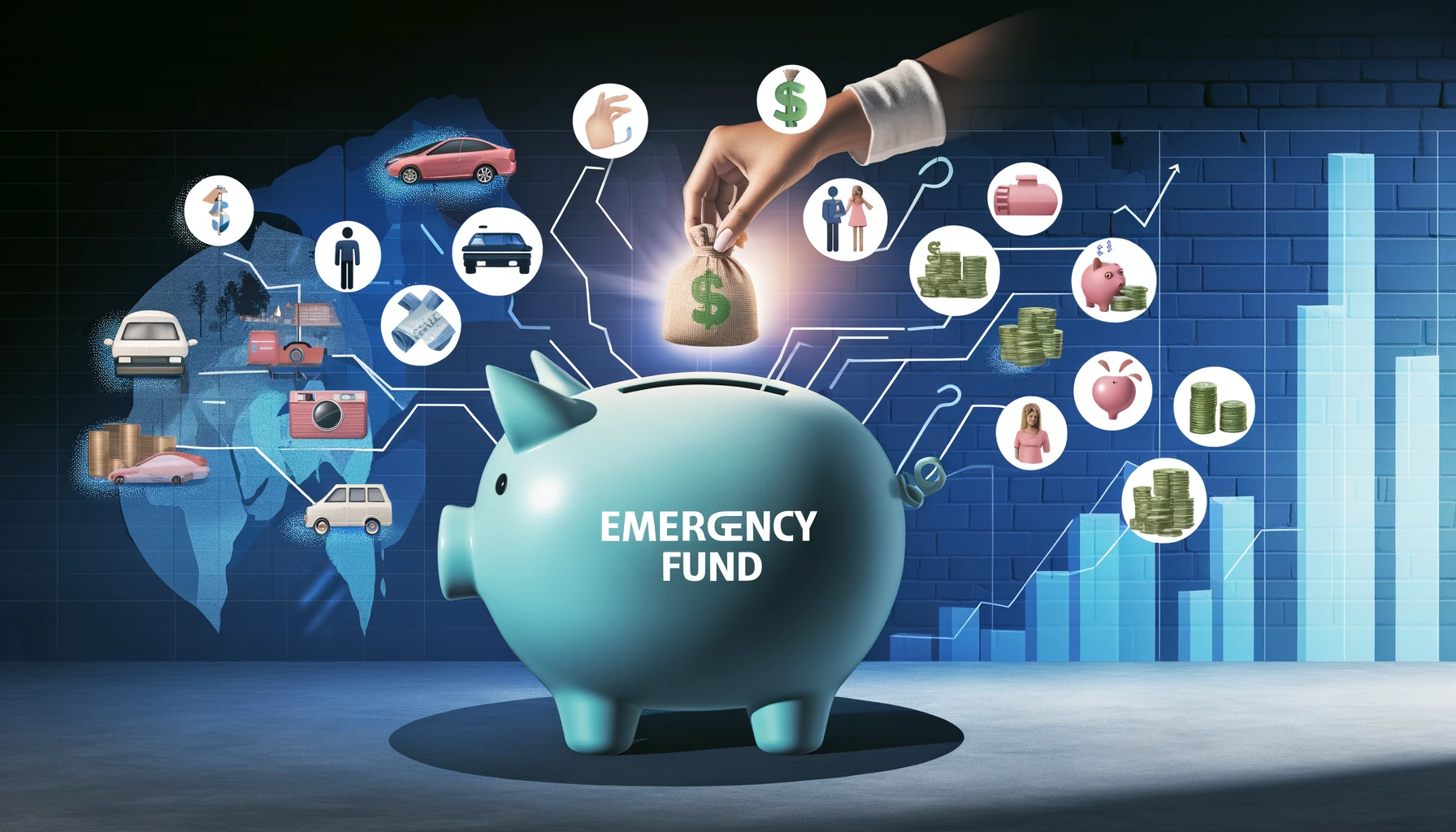In today’s unpredictable world, having a financial safety net is more important than ever. An emergency fund is a crucial component of a solid financial plan, providing a cushion against unexpected expenses and loss of income. In this article, we’ll explore the importance of emergency funds and provide practical tips on how to build and maintain one.
Understanding Emergency Funds
An emergency fund is a savings account specifically designed to cover unexpected expenses or financial emergencies. These may include:
- Job loss or reduced income
- Medical emergencies
- Car repairs
- Home repairs
- Unexpected travel
Having an emergency fund can help you avoid relying on high-interest credit cards or loans when faced with a financial crisis. It provides peace of mind and financial stability during challenging times.
How Much Should You Save?
Financial experts generally recommend saving three to six months’ worth of living expenses in your emergency fund. This amount may vary depending on your individual circumstances, such as your job stability, health, and financial obligations. To determine your target savings amount, calculate your monthly expenses, including:
- Rent or mortgage payments
- Utilities
- Food and groceries
- Transportation costs
- Insurance premiums
- Debt payments
Multiply your monthly expenses by the number of months you want to cover (typically 3-6 months) to determine your emergency fund goal.
Building Your Emergency Fund
Building an emergency fund takes time and discipline, but it’s achievable with the right strategies. Here are some tips to help you get started:
1. Start Small
If saving several months’ worth of expenses seems daunting, start small. Set a goal to save $1,000 or one month’s expenses and gradually increase your target over time.
2. Automate Your Savings
Set up automatic transfers from your checking account to your emergency fund each payday. This way, you’ll consistently save without having to think about it.
3. Cut Expenses
Look for areas where you can reduce your spending and redirect that money to your emergency fund. Consider cutting back on discretionary expenses like dining out, entertainment, or subscriptions.
4. Boost Your Income
Look for ways to increase your income, such as taking on a side hustle, selling unwanted items, or asking for a raise at work. Allocate any extra income directly to your emergency fund.
5. Make It a Priority
Treat your emergency fund contributions like any other essential expense, such as rent or utilities. Make it a non-negotiable part of your budget.
Where to Keep Your Emergency Fund
Your emergency fund should be easily accessible when you need it, but not so easily accessible that you’re tempted to dip into it for non-emergencies. A high-yield savings account or money market account is a good option, as these typically offer higher interest rates than traditional savings accounts while still providing liquidity.
Avoid investing your emergency fund in stocks, bonds, or other volatile assets, as you may be forced to sell at a loss if you need the money during a market downturn.
Maintaining Your Emergency Fund
Once you’ve built your emergency fund, it’s essential to maintain it. If you need to use some of the funds for an emergency, make replenishing the account a priority. Continue to make regular contributions to keep your emergency fund at its target level.
Periodically review your emergency fund to ensure it still meets your needs. As your financial situation changes, you may need to adjust your target savings amount.
Conclusion
An emergency fund is a vital component of a solid financial foundation. By setting aside money to cover unexpected expenses, you can protect yourself from financial setbacks and reduce stress during challenging times. Start building your emergency fund today, and give yourself the gift of financial peace of mind.
Frequently Asked Questions
What is an emergency fund?
An emergency fund is a savings account specifically designed to cover unexpected expenses or financial emergencies, such as job loss, medical emergencies, car repairs, home repairs, or unexpected travel.
Why is an emergency fund important?
Having an emergency fund provides a financial safety net, allowing you to cover unexpected expenses without relying on high-interest credit cards or loans. It offers peace of mind and financial stability during challenging times.
How much should I save in my emergency fund?
Financial experts generally recommend saving three to six months’ worth of living expenses in your emergency fund. This amount may vary depending on your individual circumstances, such as job stability, health, and financial obligations.
Where should I keep my emergency fund?
Your emergency fund should be kept in a high-yield savings account or money market account, which typically offer higher interest rates than traditional savings accounts while still providing liquidity. Avoid investing your emergency fund in stocks, bonds, or other volatile assets.
How can I build an emergency fund?
To build an emergency fund, start small by setting a goal to save $1,000 or one month’s expenses. Automate your savings, cut expenses, boost your income, and make it a priority in your budget. Consistently contribute to your emergency fund until you reach your target savings amount.
